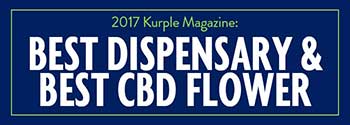When exploring cannabis products, many people ask about CBD vs THC—two of the most well-known cannabinoids. Both offer unique benefits, but their effects are distinct. In this blog, we’ll dive into what CBD and THC are, their differences, and how they can impact your health and wellness.
What Is CBD?
So, what is CBD? Cannabidiol (CBD) is a non-psychoactive cannabinoid found in cannabis plants. Unlike THC, CBD doesn’t cause a “high” but offers a range of potential health benefits. CBD interacts with the body’s endocannabinoid system (ECS), which regulates several vital functions, including mood, pain, and immune response.
CBD is commonly used for its therapeutic properties, which can include alleviating anxiety, reducing inflammation, and managing chronic pain. It has also gained popularity as a treatment for conditions like epilepsy, with the FDA approving the first CBD-based drug, Epidiolex, for certain types of seizures.
What Is THC?
Tetrahydrocannabinol (THC) is the primary psychoactive compound in cannabis, responsible for the “high” that users experience. Like CBD, THC interacts with the endocannabinoid system but in a different way. THC binds to the CB1 receptors in the brain, which results in its psychoactive effects.
THC is often used for both recreational and medicinal purposes. Medically, it’s known to help with pain relief, nausea, and stimulating appetite, especially in individuals undergoing chemotherapy. THC’s ability to alter perception, mood, and cognition makes it a powerful tool for those seeking relief from various conditions, but it can also cause side effects like paranoia and impaired motor skills.
Comparing the Benefits of CBD and THC
When comparing the benefits of CBD vs THC, it’s important to note that each cannabinoid serves different purposes. CBD is celebrated for its non-intoxicating benefits, making it suitable for daytime use and those looking to avoid the mind-altering effects of THC. It’s ideal for individuals managing conditions like anxiety, chronic pain, and inflammation without the impairment that THC can cause.
THC, on the other hand, is often preferred for more severe symptoms. It provides potent pain relief, helps manage sleep disorders, and is effective for those with conditions like glaucoma, multiple sclerosis, and PTSD. Some research suggests that using CBD and THC together, a concept known as the “entourage effect,” may enhance the therapeutic effects of both cannabinoids.
Here’s a breakdown of some key differences:
- CBD: Non-psychoactive, promotes relaxation and pain relief, great for daytime use.
- THC: Psychoactive, provides stronger pain relief, and can help with appetite and sleep disorders.
Difference Between CBD and THC for Pain
One of the most common reasons people turn to cannabis is for pain relief. So, what’s the difference between CBD and THC for pain? Both cannabinoids are effective, but they work in slightly different ways.
- CBD for Pain: CBD is known for its anti-inflammatory properties, making it an excellent choice for reducing chronic pain, especially from conditions like arthritis and fibromyalgia. It interacts with the body’s pain receptors, reducing sensitivity to pain signals over time. Because CBD doesn’t produce a high, it’s preferred by those who need consistent pain management throughout the day.
- THC for Pain: THC is more effective for acute or severe pain. It can quickly dull the sensation of pain by interacting with the CB1 receptors in the brain, which are responsible for regulating pain, mood, and other sensations. This makes THC a preferred option for those recovering from surgery, managing cancer-related pain, or dealing with intense flare-ups from chronic conditions.
In essence, both CBD and THC offer valuable pain-relieving properties, but the best option depends on the type of pain you’re experiencing. Some may find that a combination of the two cannabinoids provides optimal relief, while others might prefer sticking to one.
Why Verdes Cannabis Prioritizes Natural Growing Methods
At Verdes Cannabis, we’re committed to providing safe, high-quality cannabis products that support your wellness journey. One of the ways we ensure this is by avoiding the use of synthetic plant growth regulators (PGRs), which are sometimes used to increase the yield and density of cannabis plants. While these synthetic PGRs can enhance size and appearance, they can compromise the natural quality and safety of the product.
Synthetic PGRs have the potential to alter the plant’s natural cannabinoid profile, affecting both the effectiveness and purity of the final product. Additionally, synthetic PGRs can leave behind harmful residues that may negatively impact both human health and the environment. At Verdes Cannabis, we focus on natural cultivation methods that promote the health of the cannabis plant and, by extension, the health of our community.
By using only natural PGRs, which occur within the plant itself, we maintain the integrity of our cannabis products. This commitment to purity and safety ensures that you’re consuming cannabis as it was meant to be—natural, effective, and free of harmful additives.
In the ongoing discussion of CBD vs THC, both cannabinoids offer distinct benefits depending on your needs. Comparing CBD vs THC comes down to understanding their different effects: CBD provides non-psychoactive relief from conditions like anxiety and chronic pain, while THC offers more potent effects for severe pain and other symptoms.
If you’re looking for high-quality cannabis products, including THC concentrate, that prioritizes your health and wellness, Verdes Cannabis is here to help. Our commitment to natural growing practices ensures that our CBD and THC products are safe, effective, and free from synthetic PGRs. Contact us for more information about our products or to shop online today!
As the Head of Education & Culture for Verdes Cannabis, a legacy cannabis company in New Mexico, Kelly is responsible for researching, creating, and delivering cannabis education to not only staff but also to clients and the community. She has extensively studied cannabis for the last 5 years, receiving several certificates from the Medical Cannabis Institute and Medical Marijuana 411. She continues her studies by attending medical cannabis conferences and monthly webinars with the top researchers and doctors in the field of medical cannabis. She enjoys being able to use her extensive knowledge and training in cannabis to educate and help others learn about this amazing plant.












